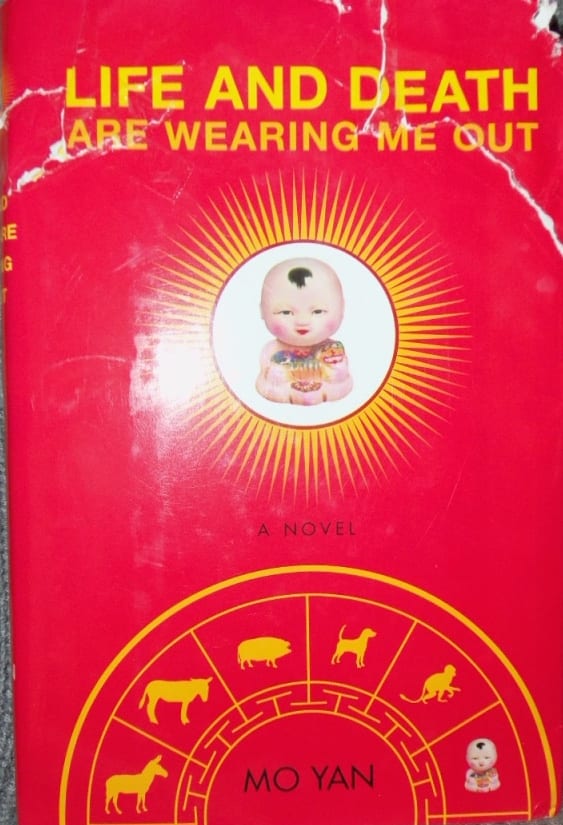A wealthy landlord, Ximen Nao, is shot and killed by one of his fellow villagers as part of land reform after the Communist takeover in China. Ximen Nao sees himself as an honest, hard-working man, a good son, devoted father, a loving spouse to his wife and two concubines, and argues with Lord Yama (lord of the underworld) against the injustice. Yama grants him a succession of reincarnations. Ximen Nao returns to earth first as a donkey. Thus begins Nobel Prize winning author (pen name) Mo Yan’s novel Life and Death are Wearing Me Out, a narrative about China’s turbulent history told in the style of magical realism and from various points of view, including animal and human narrators.
Recently, my writing class looked at point of view examples, including third person close. Here in Woman Warrior, Maxine Hong Kingston writes from her mother Brave Orchid’s point of view.
“When she was about sixty-eight years old, Brave Orchid took a day off to wait at San Francisco International Airport for the plane that was bringing her sister to the United States. She had not seen Moon Orchid for thirty years. She had begun this waiting at home, getting up a half hour before Moon Orchid’s plane took off in Hong Kong. Brave Orchid would add her will power to the forces that keep an airplane up. Her head hurt with the concentration. The plane had to be light, so no matter how tired she felt, she dared not rest her spirit on a wing but continuously and gently pushed up on the plane’s belly. She had already been waiting at the airport for nine hours. She was wakeful.”
I smile whenever I read this paragraph. Seeing Brave Orchid use her will power to keep that plane in the air, I recognize my own magical realism. How many nights have I stayed awake, thinking the world will be safe if I worry enough? Maybe I should write a book titled: Holding Up the World is Wearing Me Out.
Writing from different points of view can bring characters to life. Readers hear the characters’ voices and view the world through their eyes. And when I make myself into a character, I might recognize what Richard Rohr and others have called the “shadow self,” the person made of clay, not evil but someone I don’t want others to see.
My shadow self is Mo Yan’s stubborn donkey braying with pride and jealousy, his hard-working ox dying for success, Brave Orchid’s anxious vigilance, waiting.




Yes, and so many of us live only within our point of view. Unwilling to see the point of view of others, we shrink and diminish our world so as not to threaten our ego.
The ego likes its own narrow point of view. To quote from Richard Rohr’s July 10th reflection, “To succeed in the first half of life we usually have to deny our shadow and unacceptable self. This allows us to look good, but not really be good.” But if we stop hiding our shadow self and open to other points of view, “Life becomes many shades of pastel instead of just several primary colors,” Rohr continues. “We finally see what we have never dared look at before. This is the birth of compassion.”
Thank you for your comment! -C.D.